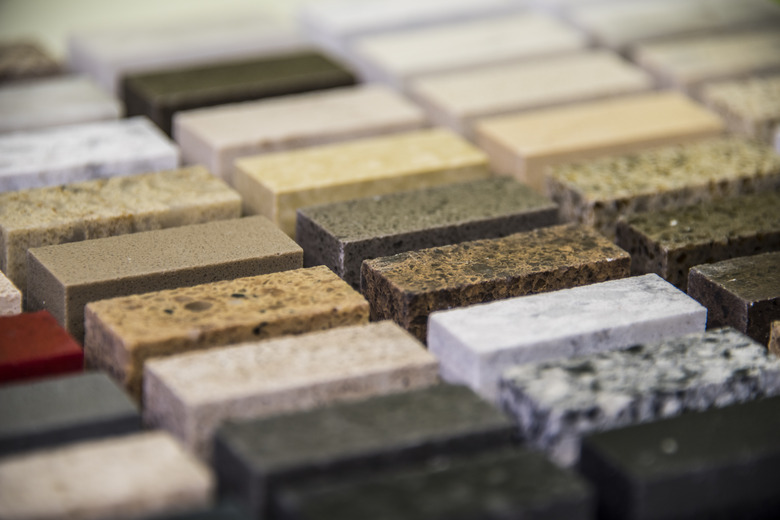Quartz Vs. Granite Countertop Weight
Both quartz and granite are heavy, durable materials used in countertops. The two minerals are very close in density, meaning for the same amount of material, the weight for the minerals themselves is nearly the same. Weight differences in granite versus quartz countertops come mostly from details such as slab thickness and backing materials.
Weight and Density
Weight and Density
A substance of greater density weighs more for the same volume than one of lower density. Because quartz and granite are minerals with natural variations, exact density varies from sample to sample, though overall quartz averages about 2.65 g/cc and granite comes in a little heavier at 2.7 to 2.8 g/cc. Countertops of comparable size of granite and quartz will weigh about the same, give or take a few pounds.
Square Foot Measure
Square Foot Measure
For convenience, kitchen contractors typically figure the total weight of a countertop based on a per-square-foot measure of a material of a standard thickness. For example, 3-cm (1 1/4 in.) granite weighs in at 19 pounds per square foot. Because its density is about the same, a foot-square slab of quartz of the same thickness will have the same weight.
Typical Countertop Weight
Typical Countertop Weight
Countertop sizes vary depending on the layout of the kitchen, bar or other room in which they are installed. A typical counter might measure about 30 square feet. With 1 1/4 in. granite, multiplying 30 square feet by 19 pounds per square feet gives you a hefty 570 pounds, or more than the weight of two average refrigerators.
Cite This Article
MLA
Leone, Jay. "Quartz Vs. Granite Countertop Weight" sciencing.com, https://www.sciencing.com/quartz-vs-granite-countertop-weight-5858366/. 13 March 2018.
APA
Leone, Jay. (2018, March 13). Quartz Vs. Granite Countertop Weight. sciencing.com. Retrieved from https://www.sciencing.com/quartz-vs-granite-countertop-weight-5858366/
Chicago
Leone, Jay. Quartz Vs. Granite Countertop Weight last modified March 24, 2022. https://www.sciencing.com/quartz-vs-granite-countertop-weight-5858366/
